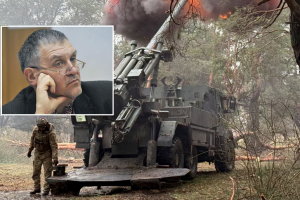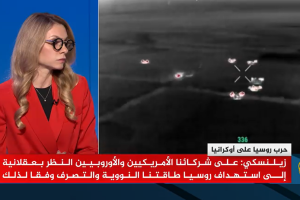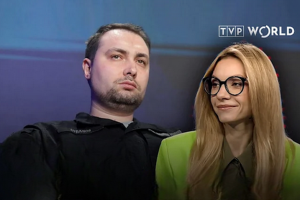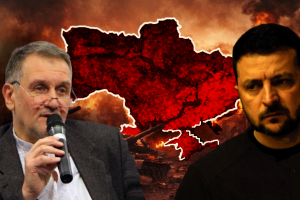Deputy immunity in the “cross-hairs”: fight against corruption or political technology
Last week on July 11 and July 13, the Verkhovna Rada reviewed the case filed by the Prosecutor General of Ukraine on stripping 6 people’s deputies from 5 different factions and parliamentary groups of their immunity. Boryslav Rosenblatt, Maksym Polyakov, Yevhen Deidei, Andriy Lozoviy, Oles Dovhiy and Mykhailo Dobkin came into the field of vision of investigations launched by the National Anti-corruption Bureau of Ukraine (NABU), the Specialized Anti-corruption Prosecutor (SAP) and the Prosecutor General’s Office of Ukraine (PGO).
These events turned the attention of political experts and broad layers of the public first of all by their scale, as well as the general level of political discussion that carried on throughout the week. The review of these cases also once more demonstrated the heterogeneity of the parliamentary coalition, as well as other political forces in the parliament and the presence of informal groups within them. While so far it is too early to speak of the prospects of investigations and all the more judicial reviews, the rise in tension in the parliament and manifestations of hidden principles of solidarity among representatives of the establishment can be affirmed.
Unlike in previous cases of the NABU and the GPO against people’s deputies, this time there is less talk about political persecution, seeing as 3 of the 6 deputies against whom cases were filed represent the effective coalition in the Verkhovna Rada. Moreover, the pro-presidential political force at least publicly alienated itself from its representative Rosenblatt and expelled him from the faction. However, the situation with other deputies under investigation is somewhat different. Representatives of the Opposition Bloc, the Radical party, The Will of the People and, to a lesser extent, the People’s Front demonstrated that they put forth all efforts to “defend” their own.
The most resonant case is that of deputy Boryslav Rosenblatt of the Petro Poroshenko Bloc (PPB), who is accused of receiving a bribe of nearly US $300,000 that he demanded and received from the representative office (in truth, special undercover agents of the NABU) of a company registered in the United Arab Emirates for “aiding and abetting” the extraction of amber. In order to strengthen the effect of the committed crime, deputies were even shown a “film” about how Rosenblatt received his cut from this bribe at a hearing of a regulatory committee[1].
Documenting and fixation of the criminal case was truly executed at a high level, which is why people’s deputies could not turn a blind eye to these facts. Furthermore, journalists even compiled a “restaurant map” of places where the key events of the investigation took place on the basis of the facts made public by the NABU.
However, among all six of the cases files the parliamentarians managed to vote not only for the stripping of immunity, but also for the possibility of further arrest, in the case against Mykhailo Dobkin[2]. As for Yevhen Deidei and Andriy Lozoviy, for now they avoided continuation of investigations seeing as the parliament did not give its consent to this.
It is also worth considering two aspects, the discussion of which was initiated as a result of the filing of these investigative cases on stripping immunity:
The first aspect relates in general to the issue of deputy immunity.
Cancelling of deputy immunity is one of the main promises of a large number of political forces, which were never fulfilled.
Today, Ukrainian parliamentarians have absolute immunity: without the consent of the VR they cannot be prosecuted neither for actions committed within the framework of fulfillment of duties and obligations and the powers of people’s deputies (which is a standard practice), nor for actions committed beyond the scope of parliamentary activity and which are not directly related to them (which does not correspond to commonly applied democratic norms).
Today, if not cancellation, then at least certain limitation of deputy immunity seems appropriate. At the same time, it is highly unlikely that people’s deputies will take such a step. But the fact that the work of the NABU continues to be activated and the cases of the PGO are assuming certain regularity, then the chances that the parliamentarians will want to deprive themselves and their colleagues of additional defense from criminal investigations are becoming even less. For this very reason, it is not worth expecting the limitation of deputy immunity in the foreseeable future.
The second aspect touches upon the effectiveness of the further work of the Verkhovna Rada.
There are doubts as to the readiness of further working and reaching an agreement with the coalition on voting for the “necessary” bills, first and foremost, those proposed by such political forces as the Will of the People and the Opposition Bloc. There are grounds to affirm that they are not likely to cooperate with pro-presidential forces after submissions for stripping Dovhiy and Dobkin of their deputy immunity were filed and voted for.
Such tension in the Verkhovna Rada and the activation of the work of anti-corruption bodies could have far-reaching consequences. It is totally possible that as early as this autumn, when the Verkhovna Rada is once again in session, the possibility of reaching a compromise for the support of the initiatives of the President or the government will be extremely narrow. Clearly, another scenario when the Prosecutor General’s Office enters the political playing field and applies pressure on all other members of the legislative body for the political aims of the ruling power cannot be ruled out.
At the same time, these investigations could be an excellent opportunity for President Poroshenko to improve his electoral chances through the hands of the Prosecutor General, who is close to the president. In society, where there is a powerful request for social fairness and the fight against corruption in the higher echelons of power, the active work of the PGO will most likely be positively welcomed. However, any actions will not have any radical effect without the logical conclusion of court proceedings, which at the moment presents a certain problem for the Prosecutor General’s Office.








